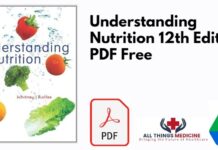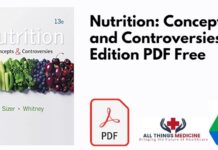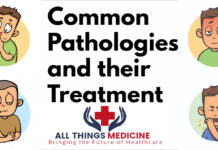Reproduction, growth, and development are possible when you are healthy, strong, and fit to cope with everyday challenges. If we are weak, stressed, and unfit this means we need a balanced or perfect diet. A healthy or perfect diet means taking up all the essential nutrients every day. Our body cannot build nutrients on its own. So it is necessary to consume a variety of food and maintain health equity. Dr. Kris Sollid,(RD), Director of Nutrition Communications, emphasizes the importance of a balanced diet by saying you will have the best version of yourself only when you maintain a balanced diet.

Did you know what a Perfect diet is?
“A Balanced diet means a diet loaded with a variety of nutrients to fulfill your energy demands”. Your meal plate must contain vital nutrients including minerals, carbohydrates, fats, proteins, vitamins, anti-oxidants, and tracer nutrients. A whole bunch of foods will boost energy and essential health. A stronger immune system is a gift if we choose to eat healthily. On the other hand, consuming excessive calories will make you fall into the overweight or obese category. So, keep count on your calories per day!
There is a fascinating bond between a balanced diet with lifestyle and immunity. Poor diets will make your immune system weaker and more vulnerable to infections. You must be thinking is it possible to intervene between a healthy lifestyle and stronger immunity? Well, yes!
A balanced or perfect diet will provide you with all the essential nutrients to maintain a healthy, natural, and stress-free life with a strong defense system. To accomplish small changes for a healthier tomorrow is always difficult but is not impossible. Cutting off junk foods, coffee, and most importantly getting rid of unhealthy sleep cycles is always hard but for better health and wellness it’s never been too late to try!
Essential Nutrients and their role:
Nutrients are the ingredients our body use for optimal functioning and maintaining energy. We need some of these nutrients in larger amounts known as macro-nutrients. While some in smaller amounts are known as micro-nutrients. Both types of nutrients are equally important for the body and its functioning.
We can have healthy foods from BIG FIVE Groups that supply adequate nutrients:
- Vegetables
- Fruits
- Poultry
- Dairy
- Whole grains
To get unlimited benefits your diet must include smaller but necessary proportions from all of these groups. Along with balanced nutrient intake, you need physical activity or workouts. This is to burn excessive calories and protect yourself from emerging concerns such as diabetes, obesity, cardiac complications, and mental disabilities.
Let us break down the term nutrient to have a clear idea of a balanced diet. Nutrients are the smallest molecules our body uses for energy and physical activities. These nutrients are essential for every cell, tissue, and organ of our body which we obtain from food items.
1. Carbohydrates: They are the major energy derivatives and are macro-nutrients. It is very important to know the type of carbohydrates we are consuming. Excessive carbohydrates increase the calorie count and will put on your weight. Non-refined carbohydrates aim for more energy and health as compared to the refined form of carbohydrates. Cereals, whole grains, vegetables, beans, and fruits are the stipulating form of carbohydrates. Whereas; potatoes, pasta, bread, and other processed forms will not provide you with adequate energy demands. A superfood platter will assemble you resilient against infections, maintaining your mental and physical wellbeing. We can say carbohydrates are the fuel of the body to grow, repair and thrive in life.
2. Proteins: Nutrient-dense diet is the absolute need of the present time. Among macronutrients, proteins are a vital ingredient. From antibodies, enzymes, cells, tissues, and organ-level proteins are performing their function. Foods such as eggs, meat, and chicken meat contain the highest values of proteins. While in the grains and cereals its value is minimum. On average, at 140 pounds, a person must have 50g of protein intake every day. In calories, 10% to 30 % proteins will keep you fit and healthy. Unfortunately, millions of people are starving and falling below the line. They are unable to have enough nutrients to be healthy.
3. Fats: These are the lipid group of nutrients. Fats are of two types soluble and insoluble. Unsaturated fats are liquid and soluble lipids, while saturated fats are insoluble lipids.
Palm oils, nuts, avocado, fish, sunflower, and olives are rich sources of fats. Omega-3 is one of the essential nutrients our body requires for brain functionality. We can take up to 8-10% fat calories per day. The Extreme intake of fats will cause a risk of cardiovascular problems and fatty liver.
4. Minerals: These are required in small amounts by the body. Though little but adequate supply will help to retain body health. A balanced diet means taking calcium, copper, iron, selenium, and zinc according to daily nutrient values. Minerals are essential for many organs to function efficiently. They are also responsible for hormone and enzyme synthesis. Zinc is one of the most vital players among minerals. This aids in the formation of more than 100 enzymes. Boost immunity levels and growth. Seafood, vegetables, fruits, nuts, and beans are all chief mineral sources.
5. Vitamins: They belong to a micro-nutrient category. Vitamins keep your body’s immune system at higher levels and perform an anti-inflammatory role for your body. Vitamins are of many types like vitamin A, B, B6, B12, C, D, D3, E, K, and folates. Each one plays a crucial role in body metabolism, repairing, growth of muscles, bones, and teeth, anti-coagulation, maintaining bone density, etc. There are artificial vitamin capsules available to fulfill the need. But why not perk up by having fruits, vegetables, and whole grains. Eat naturally and stay healthy.
6. Anti-oxidants: During cellular metabolism, reactive oxygen may come up. Reactive oxygen is also known as free radicles. These free radicals can cause damage to proteins, DNA, and lipid parts of the cells. To oxidize free radicles, we need anti-oxidants that clean up your body from toxic-free radicle species. Increasing vegetal foods will provide you with enough anti-oxidants. There are no set limits on how much serving you should have to maintain anti-oxidant levels. You can win over cardiac complications, cancers, and other chronic illnesses by having foods rich in antioxidants.
Besides these, we need many other crucial nutrients that are equally important for body activities. One must keep in mind that a balanced diet means maintaining a work-life and health balance.
Healthy eating habits should start in the early years of life and must be continued at all ages. Unfortunately, people are consuming excessive and unhealthy food items. Those food items are shifting their body metabolism in different directions. They are more salts and sugars lovers rather than rely on fruits and vegetables. There is a need to foster healthy, organic, and dietary practices.
According to FDA, the number of calories must not exceed the limits. It is important to understand that nutrient counts vary depending on age, gender, lifestyle, and physical activities.
Carbohydrates: In between 45-65% of total energy. This means an average of 2000 calories is needed by an adult. We can consume 900-1300 calories from this group.
Proteins: 50g of proteins count for the daily value.
Fats: Less than 30% of total energy intake
Vitamins: Vitamin a 3000mg/day, Vitamin B3 35mg/day, Vitamin B6 100mg/day, Vitamin C 2000mg/day and vitamin D 100mcg/day
Minerals: Copper 900g, Fluorides, 3-4mg, Iodine 150mcg, Iron 8-18mg/day. Daily values vary according to age and gender.
Sugars: Less than 5% of total energy intake. As these are the worst ingredients for health and the immune system.
Summary:
A perfect diet loaded with essential nutrients will help you fight against infections and build cells. Nutrients are not produced inside our bodies. And to be healthy, we get them from a variety of foods available. Nutrient-rich foods are not only used for energy and metabolism but to ensure healthy lifestyles. You will be fit and less vulnerable to diseases. You have heard hundreds of times, “An apple a day keeps the doctor away, “I say keeping a healthy diet will keep the doctor away”.
Check out some other pro health tips
Tips On How To Lose Weight At Home Naturally
Nudge Improving Decisions About Health Wealth PDF Download Free













